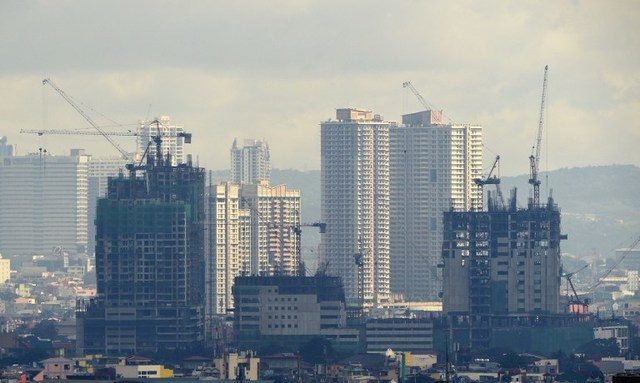SUMMARY
This is AI generated summarization, which may have errors. For context, always refer to the full article.

MANILA, Philippines – The International Monetary Fund (IMF) expressed optimism in the Philippine economy, but it expects growth to fall below the government’s target.
Luis Breuer, IMF mission chief for the Philippines, said they expect the country’s gross domestic product (GDP) to expand by 6.7% this year and the next.
The forecast is just 0.3 percentage points shy of the government’s 7% to 8% goal set for 2018 and until the end of President Rodrigo Duterte’s term in 2022.
Despite this, the IMF said the Philippine economy “is performing well.”
It did warn of increasing near-term risks like inflation and external factors, however, that could pose uncertainty. (READ: The Philippine economy’s health under Duterte)
“Policies need to be adjusted to reduce inflationary pressures, while structural reforms should continue to support inclusive growth. Against the backdrop of a shifting economic environment, our discussions focused on the need to support growth while safeguarding macroeconomic stability by adjusting policies and maintaining a healthy external position,” Breuer said.
The IMF is now expecting 2018 average inflation to clock in at 4.7%, slightly above its previous forecast of 4.2%. The figure exceeds the 2% to 4% target set by the Bangko Sentral ng Pilipinas (BSP). For 2019, the IMF sees inflation easing to 3.8%.
Inflation jumped to 5.2% in June, bringing the average to 4.3% in the first half of the year.
Breuer attributed the spike to higher global oil prices, the weakness of the peso, and the excise taxes under the Tax Reform for Acceleration and Inclusion (TRAIN) law.
The multilateral lender urged the central bank to further tighten monetary policy to tame inflation.
The BSP earlier implemented back-to-back rate hikes with a cumulative increase of 50 basis points.
“On monetary policy, I think the BSP has been very clear and we support the BSP in this position that they are taking the inflation challenge very seriously and will take measures to address that so that the inflation outcome will gradually come back to what the official range is for next year,” Breuer said.
“We expect inflation to come down in part because you have a number of supply shocks that increased the cost of production that are expected to wean or to become weaker as time goes by,” he added.
The IMF also stressed the need to maintain the budget deficit at 2.4% of GDP for this year and the next to keep inflation in check.
“Rising tax revenues, including from tax reform, and the reallocation of spending from non-priority programs can support expanding public investment at a pace that protects stability while sustaining strong growth,” Breuer said. – Rappler.com
Add a comment
How does this make you feel?
There are no comments yet. Add your comment to start the conversation.